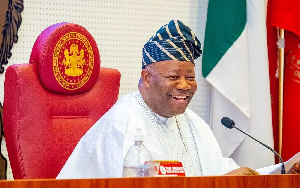The Central Bank of Nigeria (CBN) will inject about $10 billion into the Forex Market to clear the backlog of demands.
The acting CBN Governor, Folashodun Shonubi, said the apex bank would work with commercial banks to disburse the Forex.
Shonubi stated this on Tuesday, September 5, 2023, and said the banks would be essential in clearing the backlogs since they control about 75% of foreign exchange transactions.
The backlogs concern different layers within the forex market, cutting across businesses, education, and personal needs.
The apex bank chief said the applications would be handled after being stopped due to a decline in Foreign Direct Investments (FDIs), Foreign Portfolio Investments (FPIs), inflows, and international reserves.
Shonubi also mentioned manufacturers and raw material importers as beneficiaries. According to reports, other applicants are international students for school fees, foreign medical bills, Business Travel Allowance (BTA), and Personal Travel Allowance (PTA).
He said there are many obligations that Nigerian banks have already taken, which have been handled at the maturity date.
CBN has enough forex to handle demands
Shonubi stated that some bank customers still have obligations, and part of the rearrangement with the banks is also to clear the backlog.
“That is something we have been discussing for a while. I expect we will do that within the next one or two weeks,” Shonubi stressed.
He explained that the financial regulator would intervene as the apex bank’s ability to provide forex requests is unaffected, stating that the funds would be channeled via the Importers and Exporters (I&E) window.
Shonubi said: “There is so much more foreign exchange that people don’t talk about that is being made available through the banking system, and banks are selling to their customers. It doesn’t come to the Central Bank. It doesn’t appear as part of the demand that comes to us. And it is significant. It is almost three times what we as a Central Bank make available.”
The follows CBN's guidelines for foreign exchange dealers in Nigeria which specify sanctions for defaulters.
The apex bank gave the dealers a timeline to abide by its guidelines or face license revocations for default.
Business News of Friday, 8 September 2023
Source: www.legit.ng













